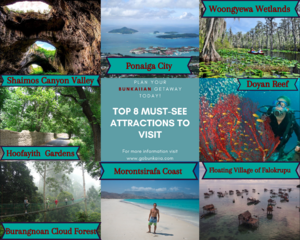Bunkaiia
Jump to navigation
Jump to search
Mazdakian People's Noocracy of Bunkaiia Wuàtouraïa Mastakei là Bàñkaïa | |
|---|---|
Emblem
| |
| n/a n/a | |
| Capital and largest city | Ponaiga |
| Official languages | Bunkaiian, Italian, English |
| Protected regional or minority languages | Doyani, Tulu, Pinoni Hebrew |
| Ethnic groups (2019) | |
| Religion (2019) |
|
| Demonym(s) | Bunkaiian |
| Government | Theocratic Parliamentary Noocracy |
| Legislature | Gouwul |
| Independence from United_Kingdom | |
• Declared | 1960's |
| Population | |
• 2020 estimate | 587,000 |
• 2010 census | 563,000 |
| Currency | Màrgareita (BMG) (BMG) |
| Time zone | UTC+4:00 |
| Date format | dd/mm/yyyy |
| Driving side | left |
| ISO 3166 code | BK |
| Internet TLD | .bk |
Bunkaïa (alternatively Bunkaiia), officially the Mazdakian People's Noocracy of Bunkaïa (Shibung: Wàtouraïa Mastakïa là Bàñkaïa), is an archipelagous country in the northern Indian Ocean. Situated North of Seychelles and South-East off of the Yemeni island of Socotra.
1 Etymology
2 Geography & Climate
2.1 Geography
2.2 Climate
2.3 Weather
3 History
3.1 Prehistory
3.2 Early Austronesians
3.3 Mazdakite Sanctuary
3.4 Swahilification
3.5 Colonial Wars
3.6 Modern history
3.6.1 Italian Colonization
3.6.2 British Liberation
3.6.3 Independence
3.4.6 2000–present
4 Government & Politics
4.1 Government
4.2 Political Parties
4.3 Administrative Districts
4.4 Cities
5 Economy
5.1 Tourism
5.1.1 Ecotourism
5.1.2 Nightlife
5.1.3 Sextourism
5.2 Agriculture
5.2.1 Aquaculture
5.2.2 Terrestrial Agriculture
5.2.3 Cavern Agriculture
5.3 Industry
5.3.1 Gemstones
5.3.2 Pearls & Corals
5.3.3 Sea Salt
5.3.4 Clay, Sand & Stone
5.3.5 Dye
5.3.6 Hemp, Reed & Bamboo
5.3.7 Construction
5.4 Manufacturing
5.4.1 Canned Goods
5.4.2 Incense & Fragrances
5.5 Transportation
6 Demographics
6.1 Ethnic groups
6.2 Religions
6.3 Languages
7 Culture
7.1 Cuisine & Foodways
7.2 Sex & Sexuality
7.3 Art & Music
7.3 Gardening
7.5 Festivals & Holidays
7.6 Architecture
8 Education
9 Flora & Fauna
9.1 Flora
9.2 Fauna
9.3 Invasive Species
10 International Relations
Etymology
Tourism

